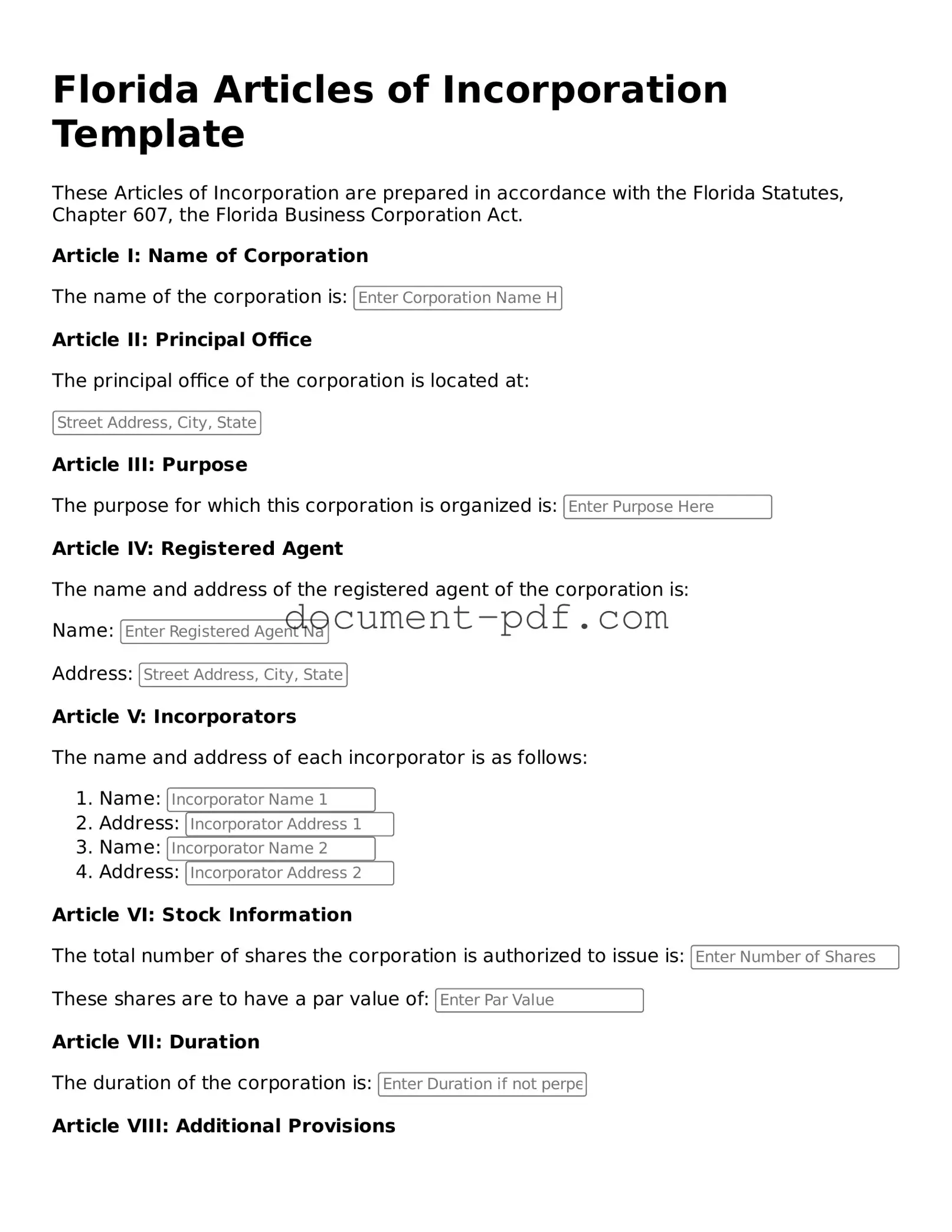Attorney-Verified Florida Articles of Incorporation Template
The Florida Articles of Incorporation form is a legal document that establishes a corporation in the state of Florida. This form outlines essential information about the business, including its name, purpose, and structure. To ensure compliance and streamline the incorporation process, it is important to accurately complete this form.
Ready to start your business journey? Fill out the Articles of Incorporation form by clicking the button below.
Access Articles of Incorporation Editor Here

Attorney-Verified Florida Articles of Incorporation Template
Access Articles of Incorporation Editor Here
Finish the form without slowing down
Edit your Articles of Incorporation online and download the finished file.
Access Articles of Incorporation Editor Here
or
Click for PDF Form
